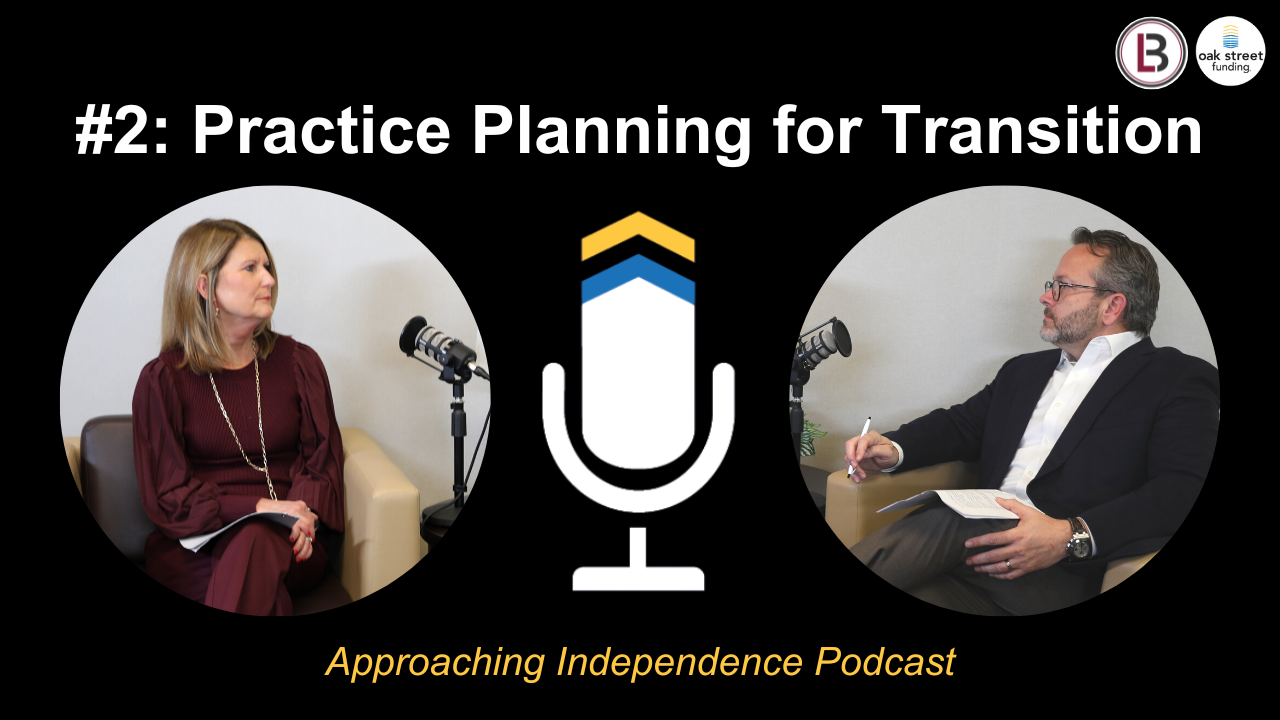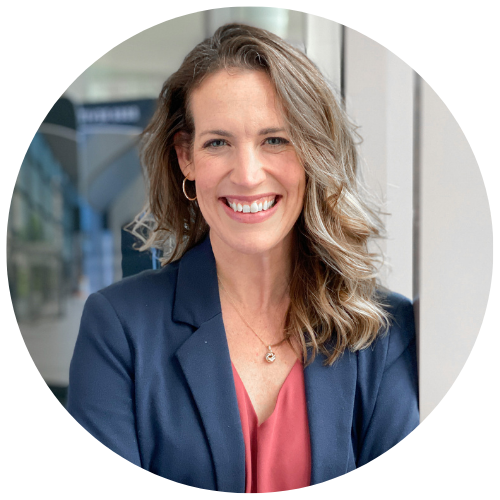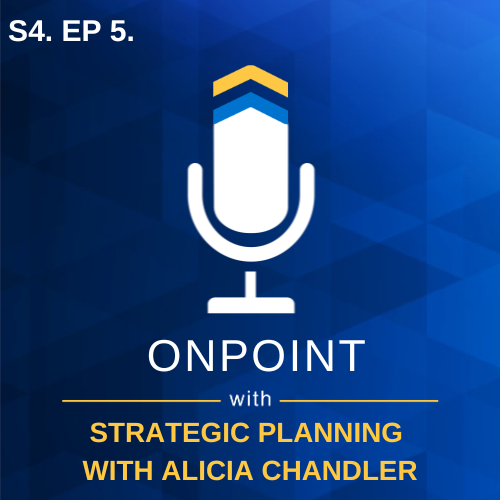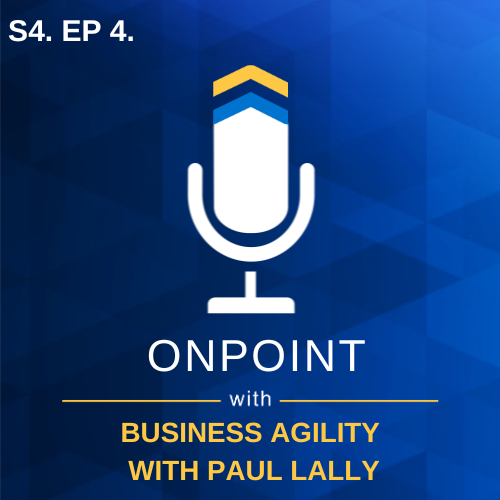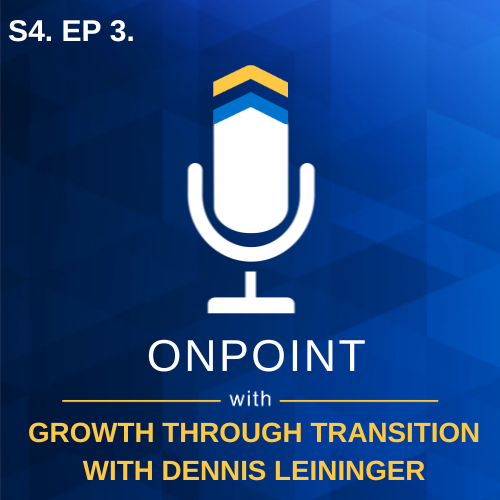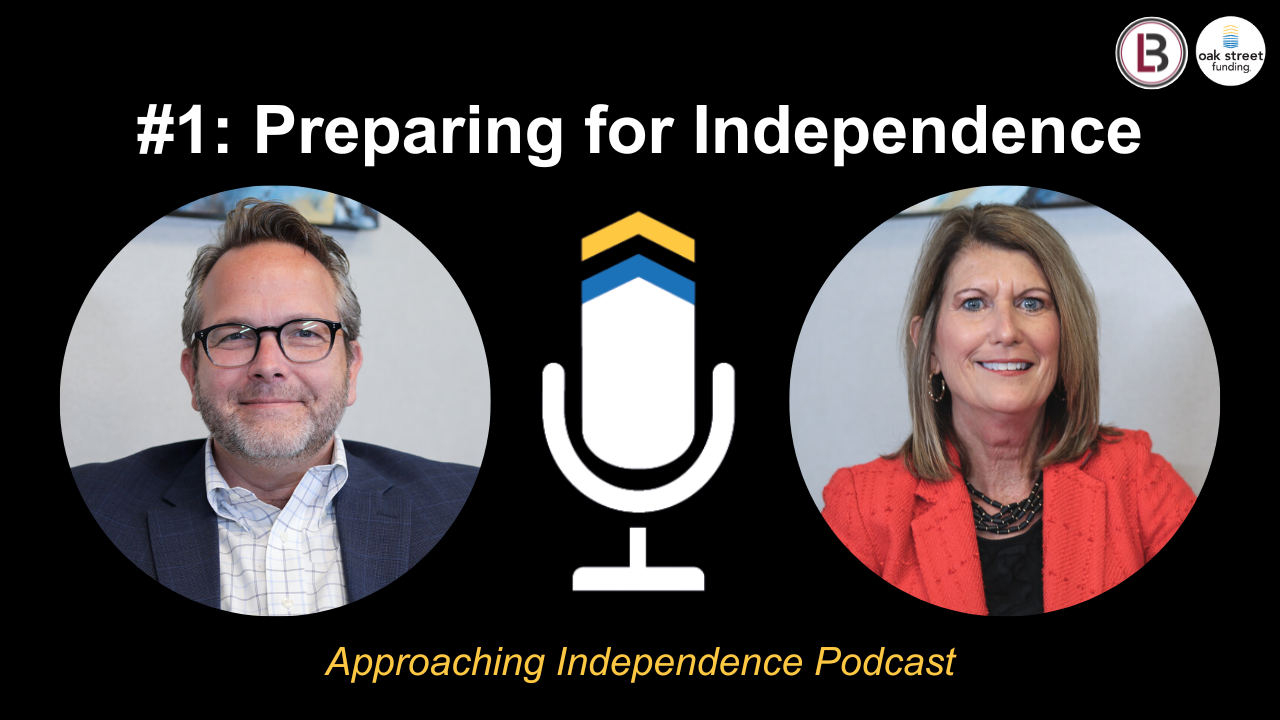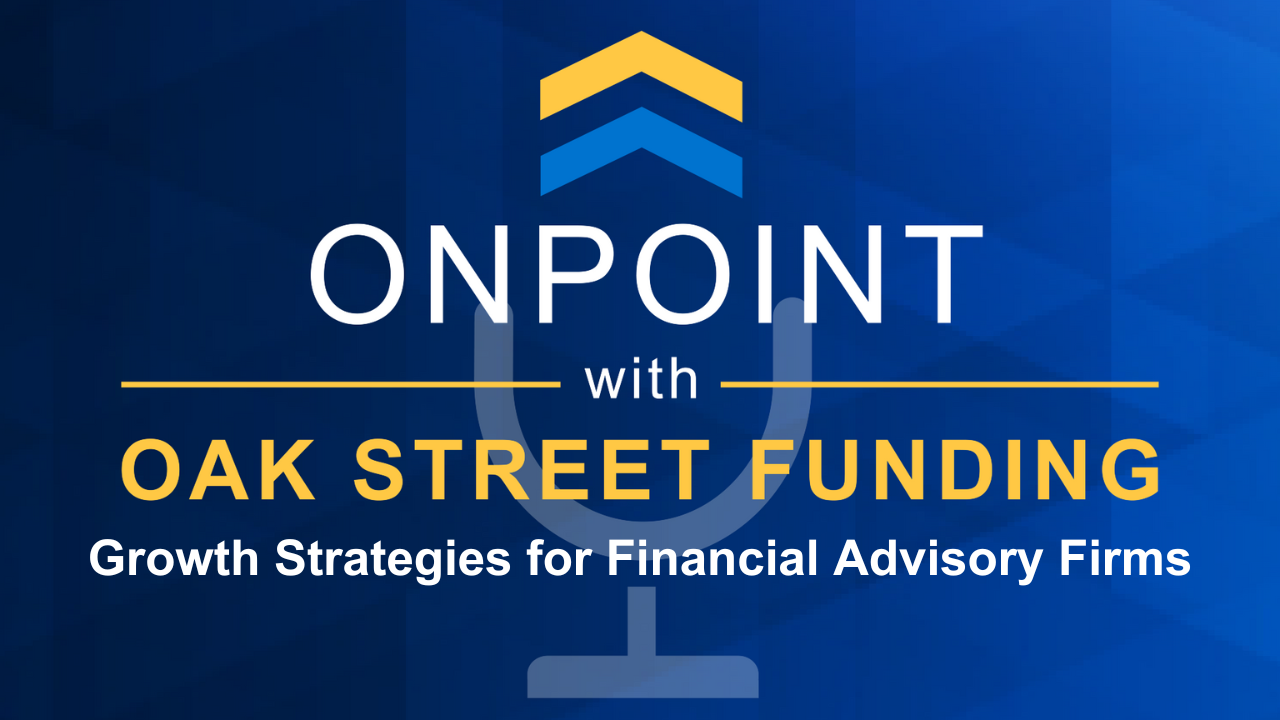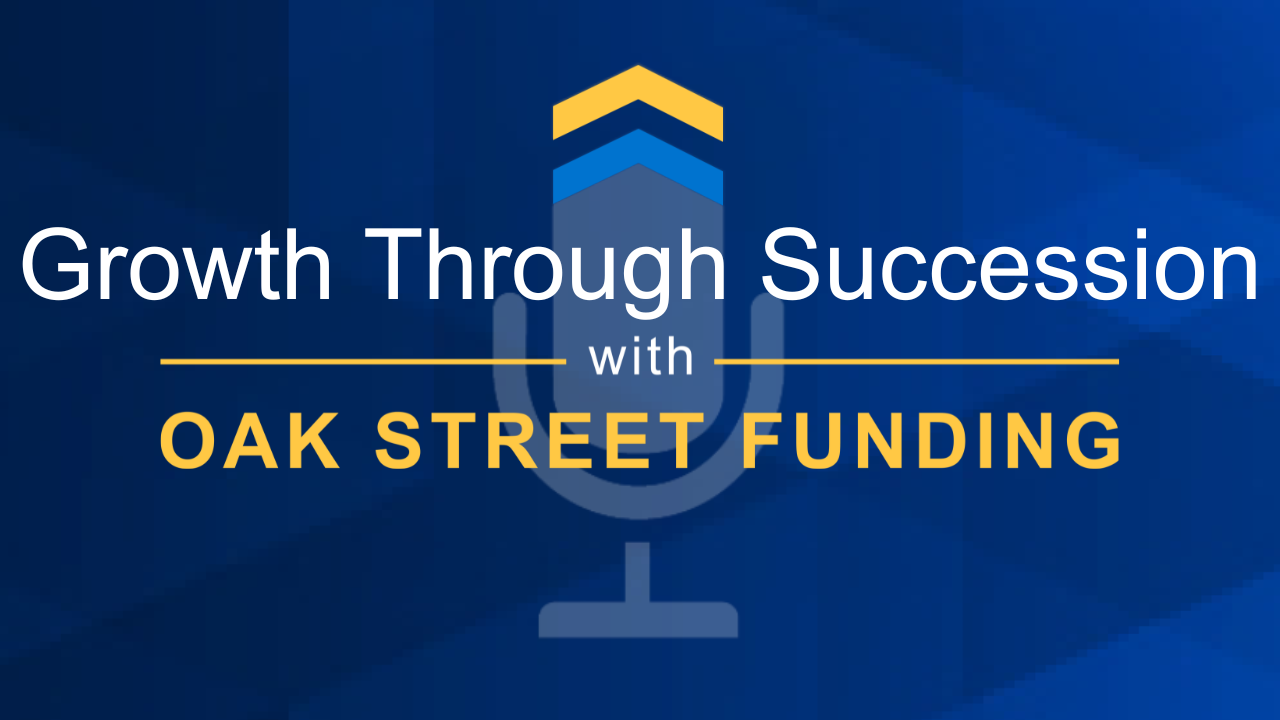Approaching Independence: Practice Planning for Transition with Bristal Lane Group
- 0.5
- 1
- 1.25
- 1.5
- 1.75
- 2
Susie McEuen: Hi, and welcome to Episode 2 on this special series spinoff from OnPoint with Oak Street Funding, called Approaching Independence. I'm Susie McEuen, vice president of strategic market sales here at Oak Street Funding, where I focus on providing capital to RIAs and investment advisors. I'm so excited to have Matt Reynolds, co- host of this new series, with me today. He's the president of Bristal Lane Group and a key resource for advisors. We look forward to bringing you this episode all about converting your business to advisory and practice planning for the transition. To start, Matt, in Episode 1 we talked about transitioning to independence, and I think it would be great if you can remind our listeners what we covered in that call and, internally, what they should know about going independent. You mind touching base, and giving us a little high- level overview of what we talked about?
Matt Reynolds: You got it. And thanks, Susie. What we really focused on was before you make the decision that you want to go independent, where you're going to go, you have to start with just looking internally. That means one, starting with your clientele, what do they need? What services can you provide? And by going independent, what can you add? Second is if you're going to have a partner or your employees, what do they need and how you're going to work together. So before you make that move. And I think an important one is the third item, which is when you're making the decision to go independent, as we've talked about in the past, it's more than just how you're compensated, but it is all the things you want to be able to control for the client experience. And I think one thing that we always have to remember is what are those services that are being offered to your client today at your current firm that you may or may not be able to continue to offer later when you go independent? So making the decision to go independent has a lot to do with what are those client needs and maybe what you're solving for as well.
Susie McEuen: No, that's great. That's a great overview and wrap up from our last series, so I appreciate that. So getting into now this episode, I wanted to ask you what you think that the key steps are as far as transitioning from a brokerage firm to going like independent fee- based- type advisory?
Matt Reynolds: Sure. As you know, we do a number of transitions a year. Large firms, what we like to call wirehouse refugees, and bringing them fully independent to the individuals who are maybe at an independent firm and simply want to have a little bit more control over their practice. What we've found the single most important is something that we touched on a little bit ago, which is why are you doing this? We sometimes forget, in our desire to make the client experience so much better, thinking that you can go somewhere else. I think sometimes it's lost on what that transition looks like and what that does to the client. So as we both know, when there's a transition that occurs with an advisor, it is hair on fire, it is details, it is running around, and typically, it's anywhere between three and six months of sleepless nights and creating something new. With the transition support, obviously that gets easier, but I think remembering what that transition is going to do to the clients, how they're going to transition, what they need to understand. Because when you're going through that process, you've spent months and months preparing for it, doing all the right things, getting consistent with what you're going to do. I think the hardest thing is for clients to understand what does it mean, that I'm moving? And two, what does that mean to my investments or to how I'm going to be treated? If we can keep that as consistent front of mind and make the transition a little less about the activity that needs to occur and more about what's the value to your clients, that's probably the single most important thing.
Susie McEuen: No, and communication is key.
Matt Reynolds: Yes.
Susie McEuen: I mean, I just went through that myself with my advisor, changed broker- dealers, and I paid attention to it because I think it has to be transparent. And so most clients with their advisor, that's a very trusting relationship, and they're going to follow, but they need to understand how's it affecting, like you said, their investments, what is it in for them, what's going to evolve as far as is it a new pricing model? Those things. And transparency and having that information upfront is going to be a real key factor. Also, if they're coming from the wirehouse as you know, or even a big bank, they have to follow their goals and also offer proprietary- type services, cross- selling, and going independent, it really opens up that ability to have open architectural- type investments and what an added value. And I think it's definitely working with the team to help make that communication very transparent, don't you think?
Matt Reynolds: I do. So when your broker just went through that process, you've helped hundreds of reps go independent and become business owners. What are some of the best takeaways? What are some of the best communications that you've heard that help clients understand what's going on?
Susie McEuen: I think the information, as far as working with a team like yours, because they can't do everything themselves. And then having who the custodian is, whether it's Schwab, LPL, whoever it is, they position with the transition team and have that transition team help lay out the map as far as the timetable. But communication, like my advisor, I got a text message, I got an email, I knew exactly what was happening. All the communication pieces, what to expect, phone calls... And I'm a small fish, I don't have millions of dollars in investments. And I appreciated that because he made sure his team was trained to be able to communicate effectively as far as the moving parts of what next step to take. So it went very smooth. With transitioning to independence, it's not for everyone, as you know, and as a lender, I can sense out whether or not that advisor is going to be able to put on their business owner hat. It's not only offering more services to those clients and being, they own their own book, their own business, but they got to run a business. And I tell advisors when they call me and say, " I'm thinking about going RIA," or" I'm working for a brokerage and I want to go independent." So I'll say, " You know what it's like being a business owner?" And, " Who are you surrounding yourself with? With the experts, firms like yours, to help with the accounting, the consulting, the technology.
Matt Reynolds: So talking about technology, when you just went through this process, did you see an immediate change in the technology that was used? How did that work out for you?
Susie McEuen: Yeah, it's actually so much better. So that was a selling point. So the technology was definitely one of the things that I think prompted this advisor to move to a different direction. And again, he surrounded himself, getting the right help to make sure he did everything right. The other thing is, if it is an advisor and they owe money out there, let's say they're an independent advisor and they're going RIA and they owe money to their current, maybe their broker- dealer or maybe to a bank, they need to make sure they communicate that. They can't just move their book of business and think that the bank's going to figure that out. That is a no- no.
Matt Reynolds: And it's one of those areas where early in the transition, when we get started just getting to know someone, one of the things we talk about is, " Okay, what do you owe? Let's just put that in the transition plan. What do you owe? When does it need to be paid back?" And the day that you leave, you leave with saying, " Thank you, I'm leaving, and by the way, this is what I'm going to pay you back.
Susie McEuen: Right. And that's where you and I, when we work together, we are paralleling with what they need to get done. Like us being Oak Street, we can get them all ready to go with their financing. If they have some kind of obligation, not a non- forgivable loan they got to pay off, we can get everything lined up and then as soon as those assets move, we can pull the trigger, pay off that loan. So we work closely with you to make sure that happens. And we just did it with one client recently and thankfully, it went very smooth sailing, but that individual was very, very organized.
Matt Reynolds: You're right, you're right. And to that point, you talked about communication. It was upfront. " I'm leaving, this is when I'm going to be able to pay you back," so there wasn't any question about the legalities of that individual leaving.
Susie McEuen: And that is huge. Make sure, these advisors, that they are seeking counsel.
Matt Reynolds: Well, I think that's another question that we had talked about. Having done this a lot, what are the different professionals that you typically ensure that someone has around them?
Susie McEuen: CPA, an attorney, a banker, which is me.
Matt Reynolds: That's right.
Susie McEuen: I call you and because they're going to start having to do their own financials. They got to have reporting, they got to be in compliance. The compliance is a concern. So ask them, " Okay, are you dealing with your transition team..." With the custodian, if they're switching custodians or if they're becoming independent with the same custodian. That's my number one question. Are they working with a consultant to help with... Because if they're going to do financing with us, we're going to want to see performance and we're going to want to know that somebody is helping them prepare financials. I mean, we are going to ask for ongoing, if they have a loan with us, updated financial statements, tax returns are being filed. I always say this. " Have your house in order. Have everything in order." An advisor working with your firm is going to give them a punch list of things they're going to need to do to get ready, besides us, helping them on that same. Because we're going to ask for some of the same information.
Matt Reynolds: Okay.
Susie McEuen: Yeah.
Matt Reynolds: We feel pretty fortunate. I mean, as a plug for Bristal Lane, one of the things that we feel fortunate about is we do have the different teams inside of the firm to be able to cover a lot of that.
Susie McEuen: Oh, that's great.
Matt Reynolds: So yes, we provide transitions, but as you know, we have an entire business around starting up companies and putting together the financials. We have a substantial tax business, so we have CPAs and attorneys on counsel, and then we also do a lot of the DE compliance work. So the benefit to your point is there's so many different flavors of independence as what we were just talking about before, understanding what the nuances are for each one of those-
Susie McEuen: That is so critical.
Matt Reynolds: It's helpful, yeah.
Susie McEuen: Because that communication piece back to the client, it's even outside of going independent, even M& A. If an advisor is buying a book of business, is it positive consent? Is it negative consent? These are things where you and your attorneys on staff can help figure that piece out because we're the lender. Even though we have our own legal staff, they're reviewing buy- sell agreements. They're asking those questions. Do they have a non- compete, non- solicitation? Can they leave? Do they have to give 30 days notification? Do they have a non- forgivable note? When does it have to be paid off? Does it have to be paid off as soon as they walk out the door? Those are the questions I ask and I got to have the answers for the underwriter.
Matt Reynolds: Well, on one of the clients that we've worked with, it goes down to, it's easy to say the financial part of it, but you and I have talked about are they buying from a respected seller, right?
Susie McEuen: Yes.
Matt Reynolds: Do they have compliance or regulatory concerns by leaving that, by acquiring that business? And I think those are all questions that are worth asking and I think that's one of the benefits that both come with enough experience. You can make sure that those questions are being asked.
Susie McEuen: And we can tell the viewers that are listening to this podcast that we can work together as a team on a call. I mean we can coincidentally, we're together in Indianapolis, so it's easy for us to pop in a conference room either at our office or your office, but to have a Zoom call and that way they can talk, the advisor can talk to both of us at the same time, makes it even smoother. So there's things you're going to think about that we may not have, because the things that you're going to want to know that we're going to ask questions on. So that's important.
Matt Reynolds: So question for you. We can talk through the compliance or the actual physical getting ready, what does it take? But when someone comes to you and they've never put together a pro forma before, what do they really need? What are you looking for right up front to just start the conversation about money?
Susie McEuen: Yeah. I want to know, obviously, if they have any outstanding debt on their practice, that's number one. And then if they are moving, I want to know what they're going to end up generating as far as revenue and have they figured out what their expenses are going to be, overhead with payroll, rent, technology? What's the things they are going to need, maybe from working capital standpoint, to help make that move? Those are some of the questions I'm going to ask. And then, are they current with the filing of their tax returns? We understand people file extensions, that's no problem, but it's going to be key that they put together a really good... We ask for three- year projections. We're focused on the first year, because that's important, because that's really what's going to be paying for the debt service if they're actually borrowing money from us and we're repaying. So we're going to ask if they do have a non- forgivable note, getting copies of that. Their AUM, their trailing 12- month revenue. Have they ever moved before? Have they ever moved their book, a business? And if you have, what was successful about it? What was it? What was the percentage of retention? And what about your staff? Have they moved before? Are they moving with you now? Is there somebody you're going to leave behind? Those are things, that first general conversation I'm going to have with that client or the advisor.
Matt Reynolds: Yeah, that makes sense. I think we've dived into some of the different questions, but starting right off the bat, being able to help them prepare what you need. I mean, I like the relationship that we have, because we spend a lot of time with these advisors and between us we can say, " Yeah, you need to take care of this," or a quick phone call to each other to say, " Reminder, this has to happen."
Susie McEuen: Yeah. Something advisors need to keep in mind through the entire process is compliance. So tell me, Matt, what are the regulatory and compliance considerations that should be considered when these advisors go independent?
Matt Reynolds: Sure. One of the things that I think we're going to be talking to, and this will be seen by a lot of different advisors looking for different flavors of independence. So it's really going to be dependent, but I think where it all starts with is understanding what you're leaving. What's your agreement say? So if you're at a wirehouse, obviously those agreements look a little bit different than if you're at an independent today and you're looking to just break off to your own RIA. An important one, though, is really getting an idea of that and then what regulations you're willing to... or you're going to be responsible for on the other side. So as we've talked about, independence has different flavors. If you're going independent with a company that has their own corporate RIA, that means it is their ADV, it might be their national name. But your local identity, that's a little bit different. You're going to have internal resources that give you very specific information about what they need done. Then it's really about working with your team internally, to make sure that you're hitting all of those requirements. If on the other hand, you really are starting your own RIA, at that point, it is an entirely new regime that you now have to put in place. So firms like ours will end up typically doing both the transition work as well as the startup work. And that startup work is everything from operating agreement and articles of incorporation to actually getting them registered with the SEC. You've said it before, the benefit with working with a group that does that is you're not guessing. There's lots of different ways to go about starting a business and getting registered. I think the reason that we've found so much success there is it really is about, " What can we implement for you so that you can focus on clients, not on making sure you're reviewing emails." And it really does come down to there's just so many details, right down to cybersecurity anymore, which we've seen a lot of new regulation come out of. We try and just make sure that everyone's working with the right vendors or has the talent internally to get it done.
Susie McEuen: No, that's great. No, very good point. So tell me, what kind of systems infrastructure that your firm helps with as far as the transition to go independent? What kind of tools? That's one of the things we do ask about as far as the cybersecurity, because especially if we're doing loans in millions of dollars, we've got to make sure. We have, our underwriting team has a punch list of things that they're like, you need to have this in place and this in place and this in place. I mean, that's where we really depend on they understand what they're talking about when they talk to us for financing.
Matt Reynolds: Yeah. So there's a couple of different ways to look at technology, but for folks like us who have been in the business and we've seen that evolution, we knew of advisory businesses before you had to have a compliance officer and how it's evolved, but I think where it starts with is client- facing first. So how are you going to build? How are you going to provide performance reporting to clients? So that's a big start. The second is dependent on your kind of business. Do you need a trading system or is the trading system at your custodian going to be what you need? And in some cases you make a decision on which custodian based on what their technical capabilities are. CRMs are important. And then of course you have financial planning if that's part of your business. I think, back to what you were talking about though, is all three of those are just fine, but what's the wrapper, right? How do you protect client information? How are you protecting yourself against cybersecurity, which has become more of a real hot topic for the regulators as well.
Susie McEuen: It is. You guys can help them with that. Make sure-
Matt Reynolds: We do. And in a lot of cases, what we'll do is we'll work with a vendor that they may have worked with in the past just from a technical perspective, making sure you don't get the blue screen of death and your printers are printing. But we will work with those companies to make sure that they're in compliance, regulatory compliance, with all the regulations that the SEC has put out.
Susie McEuen: So, just thinking of a question. With the advisors that are going independent and they work with you to get set up, when you say... I mean, you do more than that, you help support them ongoing. That's important to know. And that's one thing that we want to know if we're lending money to an advisor that is making this major change, is that they have ongoing support in the future as well. It's not like a one- stop situation with you guys. Your team is going to help them ongoing.
Matt Reynolds: Yeah, and I think that's one of the other benefits of you and I working together so much is there's a consistency. I know what you're going to need and you know what we provide.
Susie McEuen: That's true.
Matt Reynolds: That's been beneficial. But yeah, we never like to be in a position where it's a transaction. We don't want to be-
Susie McEuen: Same here.
Matt Reynolds: Right. It's-
Susie McEuen: It's a relationship.
Matt Reynolds: We have a great relationship with these folks. Advisors, we've always talked about it, when you go through a transition together, you and I have done this, you're in the trenches together.
Susie McEuen: Exactly. Build a relationship.
Matt Reynolds: You bet. So in those cases, what we do, and to your point, we don't do everything in- house. We can't be everything to everybody, but what we can do is those capabilities for new firms that are RIAs. We actually come to them with a complete package. " Here, use us and use this technology." We have different technologies we put in place. That way they don't have to worry about that the first year until they're ready to get out of the nest and decide what they want to do. But at the same time, we then work with their vendors, if they want to do that. So you and I share a couple of clients where post- transition, we work with you to make sure that their accounting is straight, we make sure that their reporting on a quarterly basis is done. So I think making sure that everyone understands that our relationship with you as a bank, with us as the support team, that's an ongoing service.
Susie McEuen: I think everybody's going to get from this podcast is that surround yourself with the experts. Being the advisor, they can't be all things to all people. They've got to surround themselves with a team to make this happen and 9 out of 10 advisors that I have talked to, probably 9. 5, they're like, " Why didn't I do this sooner? Why didn't I do this earlier?" They see the reap of the benefits. It not only benefits them, it benefits their clients and it gives them opportunity to have inorganic growth besides organic.
Matt Reynolds: Oh, yeah. So that brings up a question. Advisors are going independent and I think there's this preconceived notion, " I'm immediately going to double my income." When you go through this process, there's that timeframe where you're really what I'd call out of the market. You're just helping clients move their business or move their accounts. How do you help advisors manage their cash flows, manage their payments? How does that work?
Susie McEuen: Actually, what we do is when they get paid, obviously their fees, sometimes we have their fees actually come to a bank account. We establish a banking relationship with them with First Financial Bank. That's our parent company. And so we're going to ask for reports, if they have a financing, if they borrow money with us. We're going to ask for ongoing reports for assets under management, their revenue, to make sure that there's going to be a benchmark. They borrow money from us. If they had, let's say$ 100 million in assets under management, generating a million dollars in revenue where they left, we know there probably will be a little bit of fall off, but there may be clients they want to leave behind, but we're going to have them do some projections to determine what they think they're going to look at and we're going to use that benchmark. We're going to say, okay, let's just think that they're going to end up annualizing$800,000 a year instead of a million, and on a quarterly basis, we're going to ask for that updated reports to make sure that they're staying on track. But it is about the relationship with the client to make sure they don't leave. But it's an opportunity, too, that they're going to be able to dive deeper, that they may not have been able to do with the next gen. More households, also buying books of business where they've not had the ability to do that before, possibly even adding advisors, that is bringing a book of business to them that can be on their platform to generate more revenue, but if they borrow money from us, we're going to continue to monitor that revenue. It also gives them the opportunity with our clients if they're coming from a wirehouse or from a bank, not only are they managing their book, they also have to answer, like I mentioned earlier, to goals, and certain things they have to sell. That frees them up with the time to be able to focus on building center of influences. When I started in the business, my clients, I find out who their attorney is, who their CPA is, build those relationships with those third party to be able to get new referrals to grow even more so with new business.
Matt Reynolds: That makes sense. And I guess from a technical perspective, we get a lot of questions about structure. Should I have an LLC or do I just do it myself or do I need an S corp? From a banking perspective, does that feed into the decision- making at all? Is there one that makes more sense than the other?
Susie McEuen: We rely on the experts. We're not CPAs, and so what is going to be the best tax advantage for them? Our concern is just making sure that obviously the cash flow is going to support the debt service. Cash flow is king, and so the one thing that we do monitor, though, is how they handle distributions. There's going to be a situation where they may get a little bit of a salary and distributions, but all in all it's really is the cashflow from the book of business after they pay their overhead, is it going to be sufficient to cover their lifestyle and the debt they have with us? We have certain minimum requirements.
Matt Reynolds: That makes sense. I like the fact that it's both their lifestyle and the debt service, not just the debt service that you're worried about. I think that's appreciated.
Susie McEuen: Yeah, especially if it's a one person that is, it's their RIA and they've gone independent. The one that we just recently talked or did transitions for, that was one of the things that I looked at is what did they look like personally on their balance sheet and are they going to be able to, if there is a little bit of a hiccup with volatility in the market, and we've experienced that over the last few years, up and down. Can they take a drop in revenue? Because our underwriters, they're specialized, they lend money, they underwrite for lending money to RIAs, independent advisors, CPA firms and insurance. So they do stress tests and they make sure before we actually say yes, we're going to lend that money. They put stress tests in there to see if it's going to work. I mean, we look at the demographics of the book of business, making sure that it's not the average age is 75 or 80, and how many households they have, and the support that they're going to have from their own team besides someone from the outside.
Matt Reynolds: That makes sense. That makes sense. We do get questions about structure a lot, and I think to your point, it really depends. I hate giving that answer, but at the end of the day, it really depends.
Susie McEuen: It did. Yeah, their tax situation, and how many owners are involved, and if they plan on having... We've seen this with some of the people that we've worked with, where they have their own S corp, they're independent, but then they're on a team and they're independent, so they have another holding company, and the revenue flows through all these different entities. We need to know why it's structured that way and we set it up that we got to have copies of all the business entity documents. We tell folks, " Figure that out before. We can't fund the loan until we know if you're going to have an entity or not." As we wrap up our episode, Matt, some of the things that came to mind that since 2020 things have just been obviously different. Rates went really low. Then they started increasing, volatility in the market, values drop. The one thing that hasn't changed is really the values in these books of businesses. They have been holding their own. What we saw, from Oak Street side in early 2023, that we had a little bit of a slowdown. I mean we are still really busy, but M& A slowed down a little bit and then suddenly I think the new norm happened. Everybody realized. Interest rates are higher. They may come down a little bit, but it's like it's back to business. Everybody's out there trying to figure out their succession, M& A, if they're going to go independent. So I say it's back to business. What are your thoughts? What do you think 2024 will look like? We know interest rates, they are what they are, but hopefully they'll come down a little bit. But any thoughts?
Matt Reynolds: Yeah, we've been talking to a lot of people in that space, definitely CIO types, people who are interested, and I think you're right. I think there was this immediate pause, right? " My god, I've never paid double digits in interest before."
Susie McEuen: Exactly!
Matt Reynolds: "How does that happen?" I think after people have that shock and awe, then they go back to, " What is it that I'm really trying to accomplish?" And if it is about growth, inorganic growth especially, so they need to be independent and they need to be able to go out and buy. They're making a business decision that is theirs for the rest of their careers. So I think what we're seeing is more people are saying, " Look, if I take that large number, that interest rate that scared me before and I amortize that over the next 25 years, it still makes more sense to do that then to stay where I'm at limited for my clients."
Susie McEuen: Right. Especially right now with the aging population of advisors. The average age is 60. I mean, this is a great opportunity for succession, Gen 2 buying in, and it's just a great opportunity. So I think the interest rates, they are what they are, and people are getting used to it. I know we're as busy as we ever have been before, and we lend money from a hundred thousand all the way up to 50 million, all conventional, no SVA, so there's plenty of opportunity to get capital.
Matt Reynolds: Yeah.
Susie McEuen: Do you agree?
Matt Reynolds: Yeah. I think, and we've heard this, we've seen this. There are more ways to get capital than ever before. I think what we try and tell people is where are you? What's your long- term goal? Because if the long- term goal is really to be in this business, to be an advisor, and have a longevity, then the most expensive money is equity, because you're building something. That equity is still more expensive than double- digit interest rates. And I think that's what we're seeing a lot of, is there is that desire to build something that's a lot longer lasting, a lot bigger, but there is less and less now of the, " I want to gather as many assets as I can so I can sell." We're seeing that appetite change because, to your point, the new natural buyers are going to be someone with a lot longer timeframe and time horizon. What we're doing here, I think, is really valuable and important. I hope that it's beneficial to the people who are seeing it, but I did want to thank you, and Oak Street Bank, and maybe just a little bit of a reminder between you and I, between the history and the relationships we have, we know a lot of people, we know a lot of industry, so I'll put this out there and I think you'll say the same thing. If there's an opportunity or a question, we're happy to pick up the phone.
Susie McEuen: Absolutely.
Matt Reynolds: Right? And it doesn't cost anyone anything to simply give us a call, ask questions, and see if there's ways that we can help them with preparing to go independent.
Susie McEuen: Matt, thank you so much. It's always a pleasure working with you and having you here at Oak Street Funding. I think, as we both said, and both agree, we work very closely together. Our goal is to help clients make that step, advisor moving to independency. And so if there's anything that we can do, just pick up the phone and call and we're here to help. Thanks for listening and stay tuned in 2024 for the next episode of Approaching Independence. Have a happy holiday season, everyone.
DESCRIPTION
In the second episode of Approaching Independence, Susie and Matt discuss practice planning for transition. They talk about what it takes to go independent, managing your cash flows efficiently, a brief 2024 outlook, and the keys to relationships with vendors and clients.

